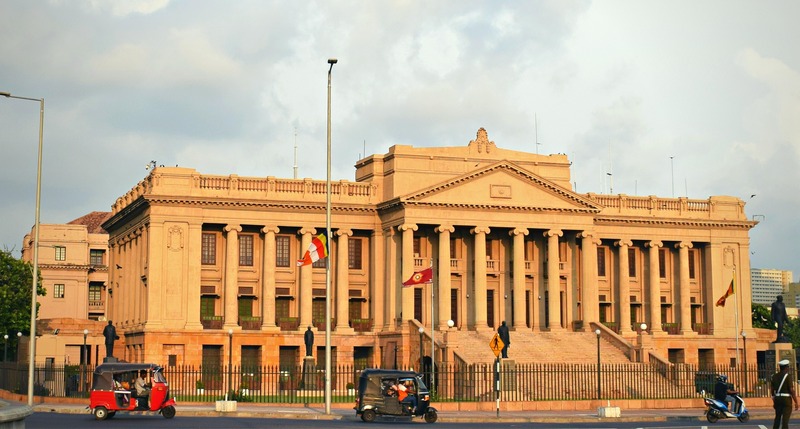IMF's $3 billion bailout package approved by Sri Lanka

Colombo/IBNS: Sri Lanka's Parliament gave the green light to a USD 3 billion bailout package from the IMF, aimed at revitalizing the country's economy that has been severely affected by a disastrous economic and humanitarian crisis resulting from a combination of poor management over the years and the ongoing pandemic on Friday.
In the previous month, the International Monetary Fund (IMF) granted approval for a bailout program to aid Sri Lanka in resolving its economic crisis and to encourage financial assistance from other development partners.
Colombo appreciated the move as a significant achievement during this crucial period and considered it a historic milestone.
After a three-day debate, on Friday, 120 out of the 225 members in Sri Lanka's parliamentary assembly voted in favor of the deal, while 25 members voted against it.
Sri Lankan President and Finance Minister Ranil Wickremesinghe in his address to the Parliament emphasized the importance of obtaining parliamentary approval, as his government is undertaking a significant economic reform program.
He stressed that stabilizing the economy, restoring debt sustainability, and creating a prosperous and inclusive country are crucial for achieving economic recovery.
During the voting in the House, the main opposition party, Samagi Jana Balawegaya (SJB), who had criticized the government for the lack of transparency in securing the bailout, were absent.
Now that Sri Lanka has obtained the USD 3 billion facility, it is engaged in discussions with bilateral and multilateral creditors for debt restructuring.
Wickremesinghe announced that the restructuring program would take effect by mid-May.
The country's economic crisis, caused by forex shortages, led to public protests and Sri Lanka's first-ever debt default in April.
The protests ultimately resulted in the removal of then-President Gotabaya Rajapaksa in mid-July, who had initially refused to seek support from the IMF but later started negotiations.
In an effort to meet the requirements of the bailout program, Sri Lanka has implemented tax and utility rate hikes, which have sparked demonstrations from trade unions and opposition groups.
The program is expected to provide access to financing of up to USD 7 billion from the IMF, International Financial Institutions, and multilateral organizations.



